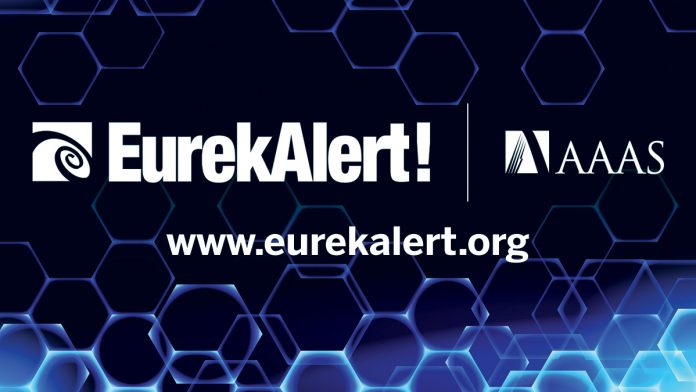A new peer-reviewed study by researchers at NSF International and Novateur Ventures finds significant variability in the accuracy of currently available COVID-19 antibody tests. The study, “COVID-19 Serological Tests: How Well Do They Actually Perform?”, appears in the latest issue of the journal Diagnostics, an international peer-reviewed open-access journal published monthly by the Multidisciplinary Publishing Institute (MDPI).
In the absence of vaccines and effective therapeutics for SARS-CoV-2 and the associated COVID-19 disease, reliable antibody testing can be a key element of public health policy to control further spread of the disease and gradually ease quarantine measures.
The study was coauthored by Robyn Meurant, Executive Director of Health Sciences for NSF International, Abdi Ghaffari, Advisor in Scientific affairs at Novateur Ventures and an Adjunct Associate Professor at the Department of Pathology and Molecular Medicine at Queen’s University, and Ali Ardakani, Founder & Managing Director at Novateur Ventures.
The urgent need for the development of antibody diagnostic tests in response to the COVID-19 pandemic has compelled regulatory bodies to implement emergency use authorization programs to expedite the commercialization process of these tests. “Granting FDA Emergency Use Authorization to several companies to accelerate the manufacturing of diagnostic tests was a good move,” said Ghaffari. “But it must be accompanied by informed and clear guidelines on preferred and minimally acceptable profiles of the COVID-19 antibody tests designed for a specific indication.”
Published independent performance data of five CLIA (chemiluminescence immunoassay), 15 ELISA (enzyme-linked immunosorbent assay) and 42 RDT (rapid diagnostic test) antibody tests that are currently on the market were reviewed for this study to understand their limits and potential.
“No single assay can be used for all diagnostic use cases in the COVID-19 response for a country,” said Meurant. “What works well in one setting may be inappropriate or not accessible for another. As such, access to information on test performance, that is generated independently, greatly assists countries in informed decision-making.”
The findings show significant variability in the accuracy of marketed tests and highlight several lab-based and point-of-care rapid diagnostic tests with high performance levels in detecting SARS-CoV-2 specific antibodies. The findings of this review highlight the need for ongoing independent evaluations of commercialized COVID-19 diagnostic tests.
“Antibody testing is important to understanding the extent of exposure for COVID-19 so it can be effectively monitored and treated,” said Ardakani. “It is important for regional and national governments to continue their coordinated efforts to independently validate antibody test performance and also partner with industry to scale up manufacturing and production capacity.”
Thirteen top-performing COVID-19 antibody tests were identified in this study based on independent evaluations of their sensitivity (ability to correctly identify those with the disease) and specificity (ability to correctly identify those without the disease) data (>95% accuracy).
In any infectious disease outbreak, accurate and accessible diagnostic testing must be one of the pillars of control measure policies to understand and minimize the spread of disease. The epidemiological studies of the outbreak in China estimated the proportion of undetected COVID-19 cases to be as high as 86% . As asymptomatic or mild cases could play a significant role in the transmission and spread of the SARS-CoV-2 virus, symptoms alone are not reliable diagnostic markers.
There are two major types of diagnostic technologies available to address this: molecular and antibody (sometimes called serological) tests. Currently, much of the focus is on the SARS-CoV-2 molecular test, which can detect, with high accuracy, the viral-specific RNA molecules circulating in the host body. However, the molecular test is not useful in distinguishing between highly infective viruses versus ones that have been neutralized by the host, and it cannot assess immunity status against SARS-CoV-2. Antibody tests can complement molecular-based tests in providing a more accurate estimate of SARS-CoV-2 incidence and potentially detect individuals with immunity against the disease as these tests detect markers of the immune response.
###
About NSF International
NSF International (nsf.org) is an independent, global public health organization. NSF’s health sciences services include training and education, consulting, clinical research, international regulatory guidance, corporate compliance, testing methods validation, and, separately, auditing, QMS (ISO 13485), GMP and GLP analytical testing, certification and R&D for the pharma biotech, medical device, dietary supplement and bottled water/beverage industries throughout the product lifecycle. In addition, NSF has CRO capabilities to help bring COVID-19 IVDs to market.
About Novateur Ventures
Novateur is an established global life sciences advisory with extensive experience related to business development and product development of therapeutics, medical devices and digital health products. For more information, visit: http://www.
TDnews















